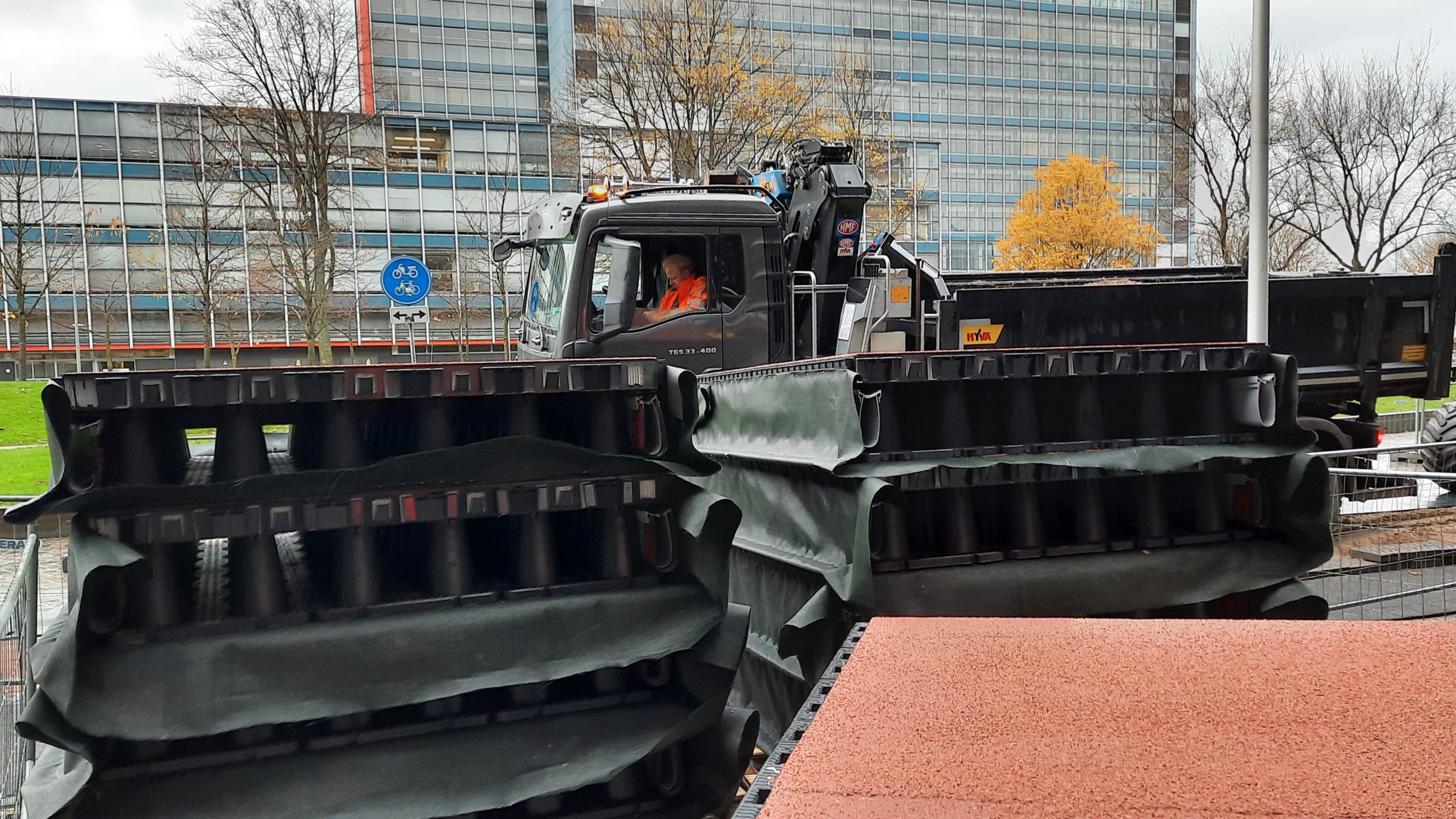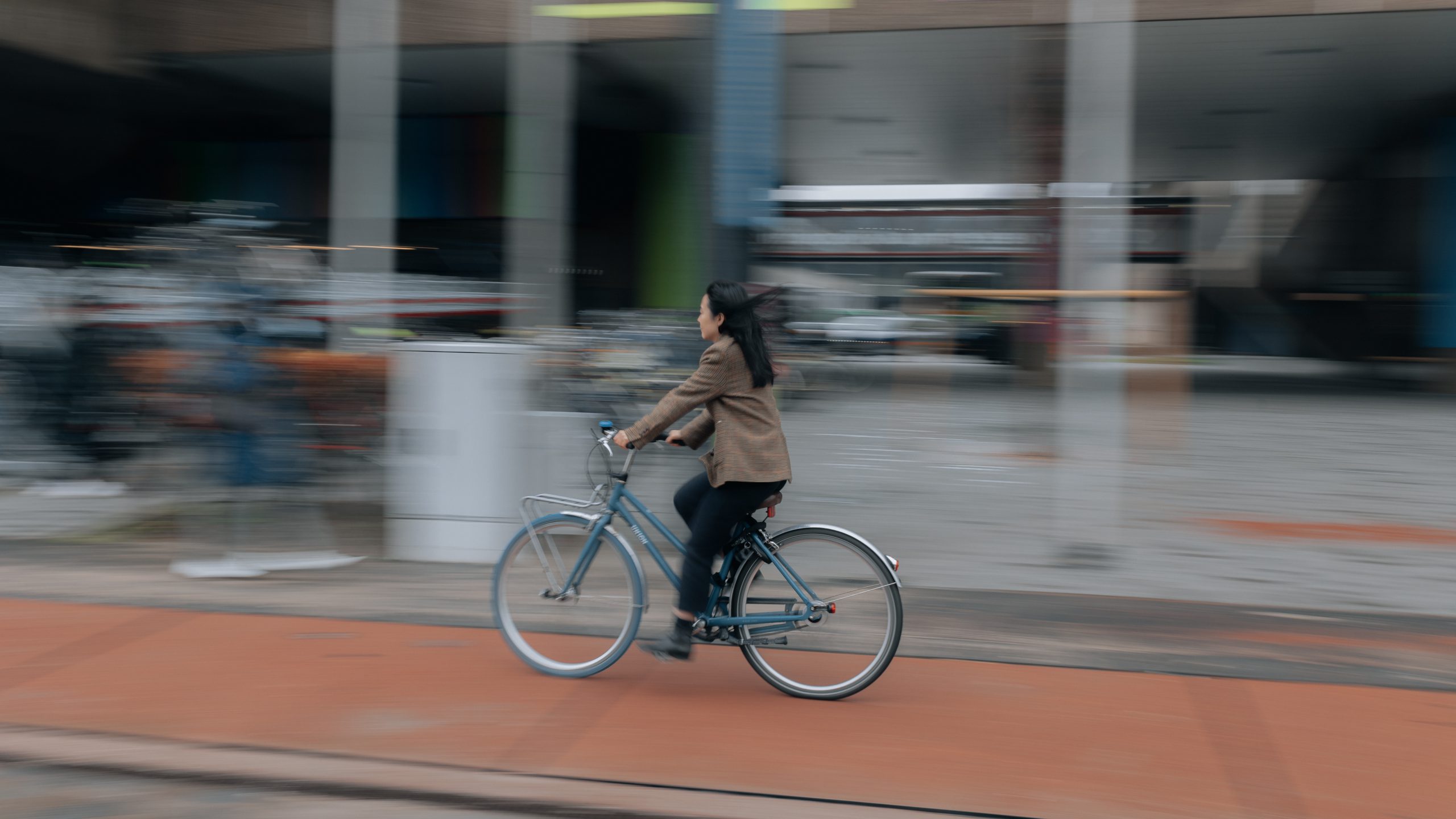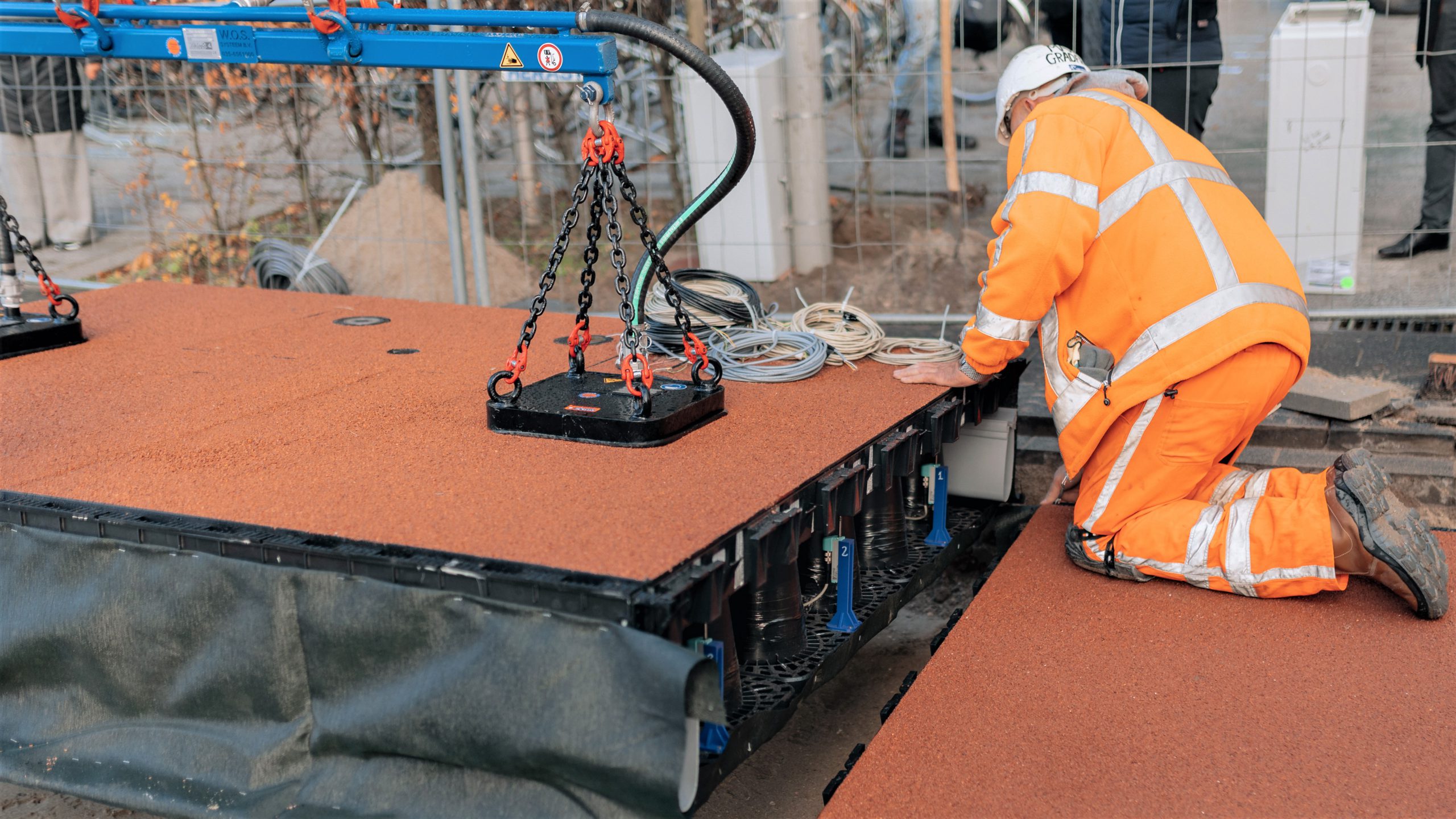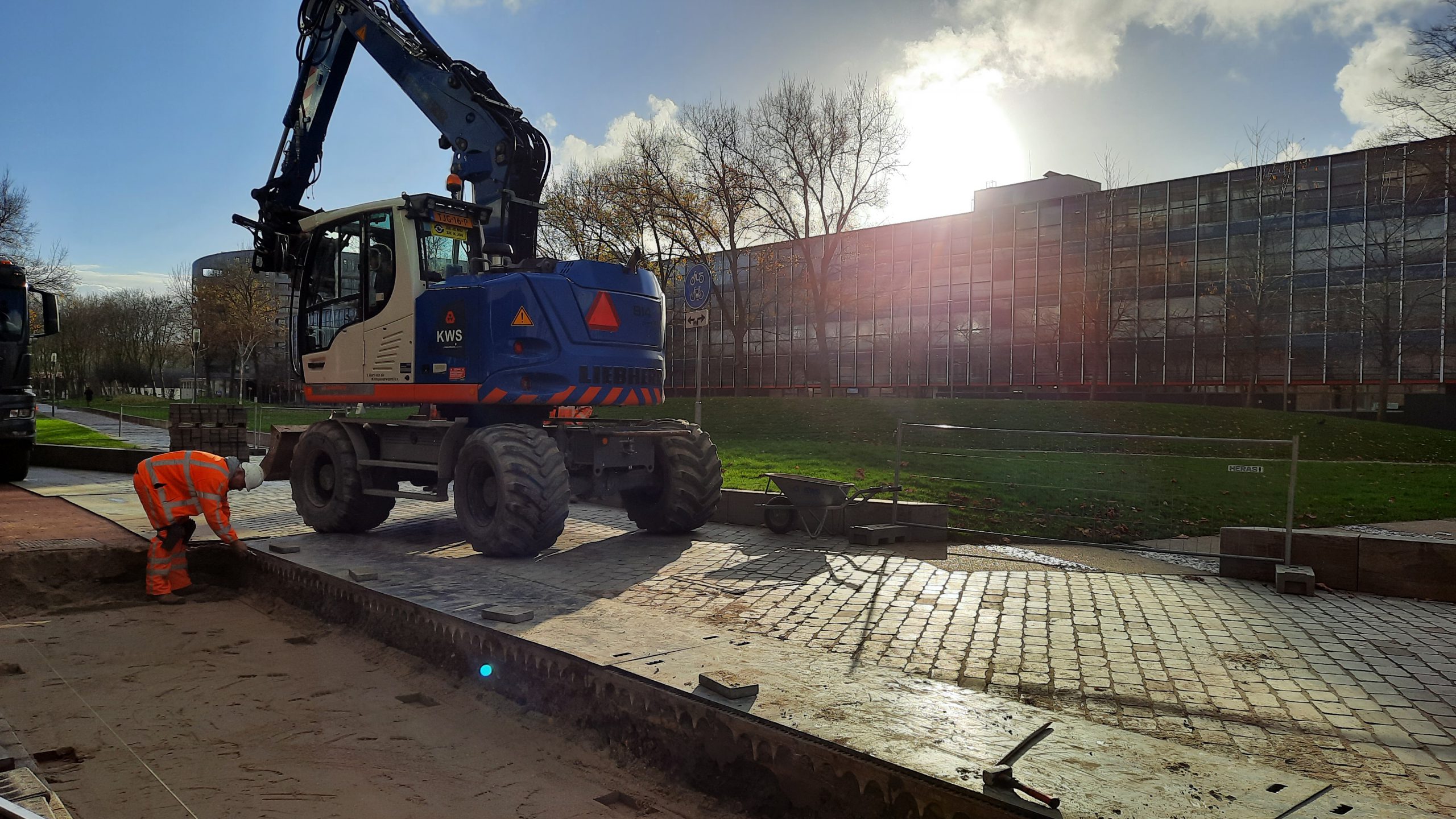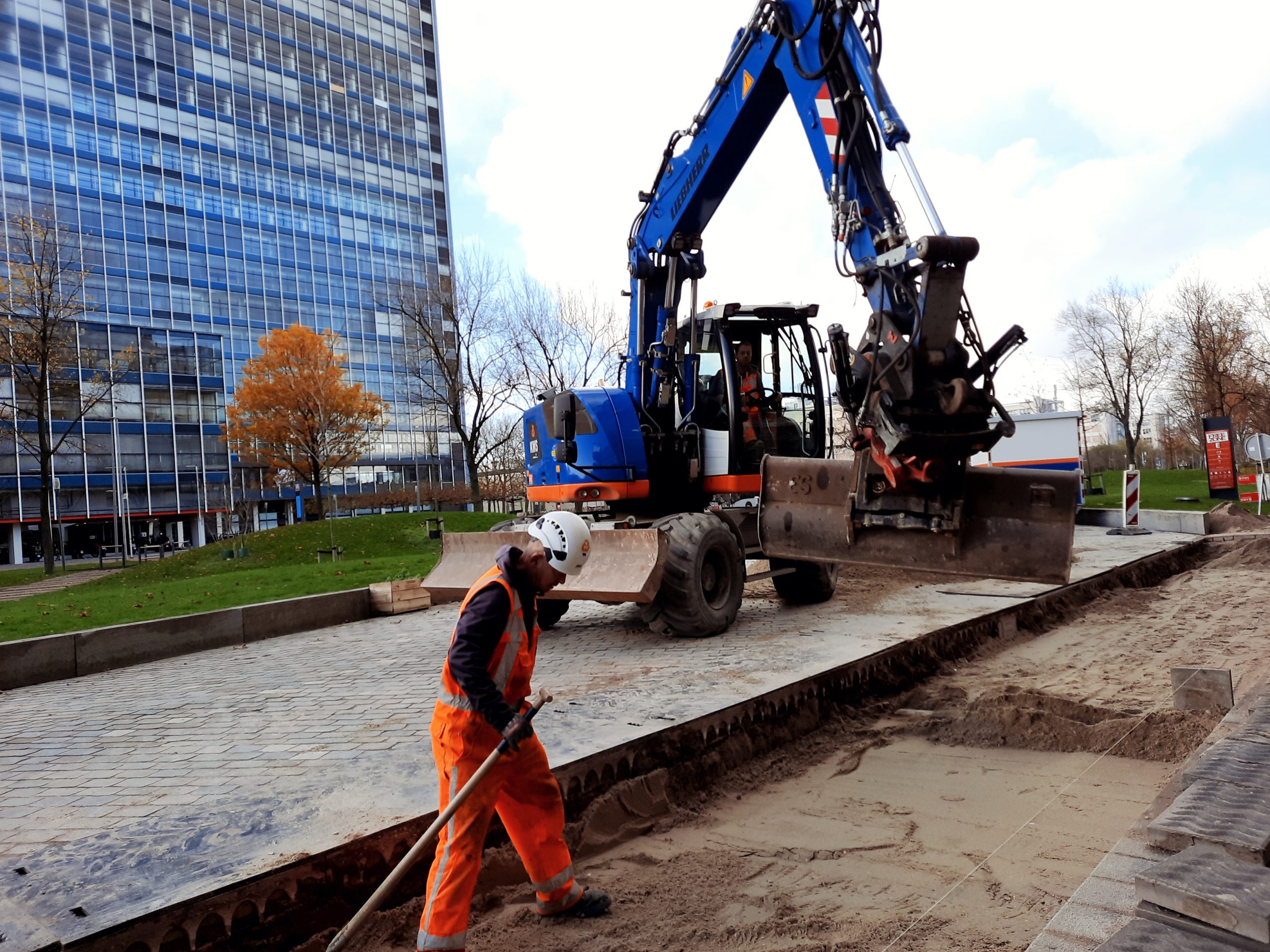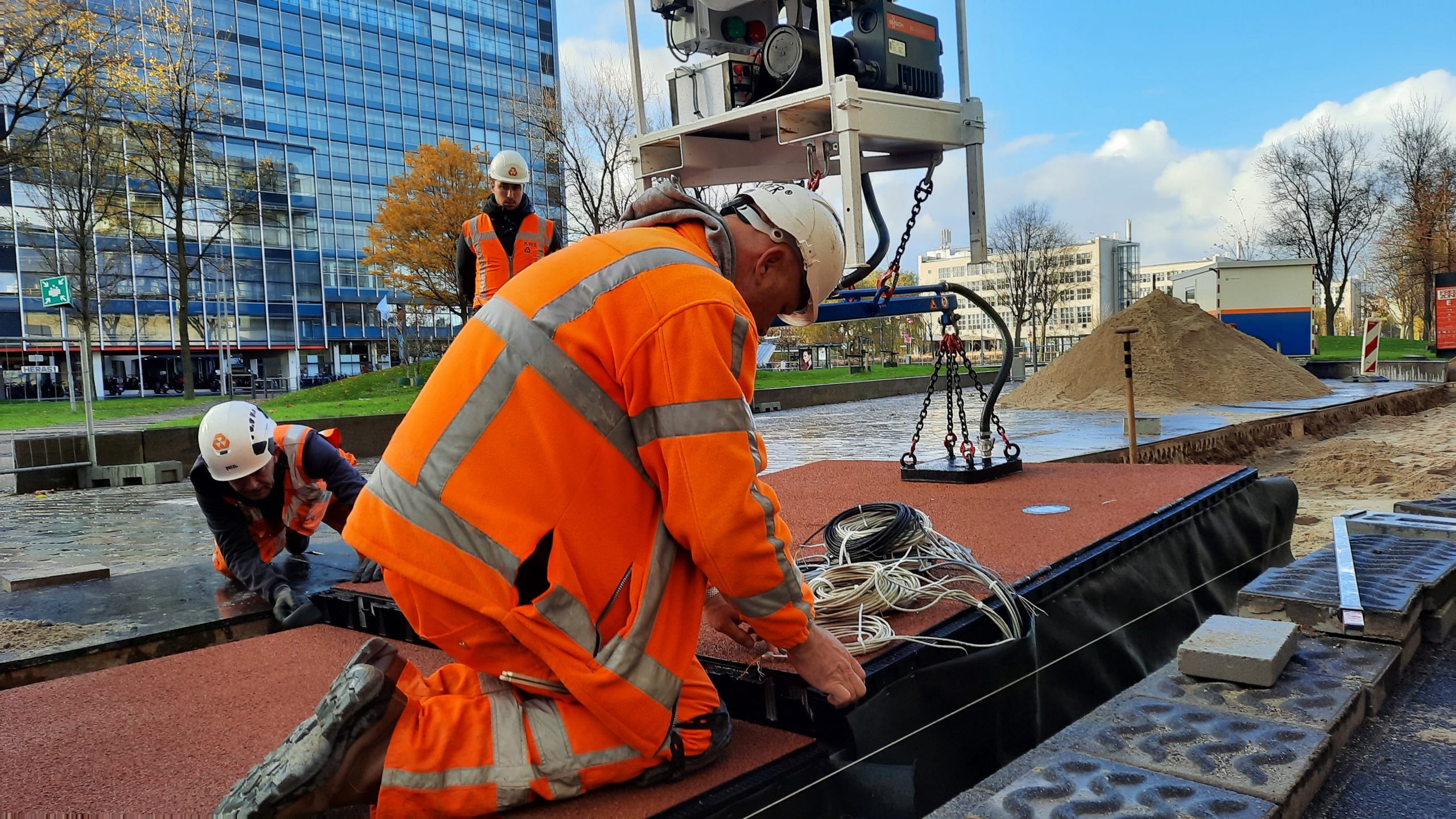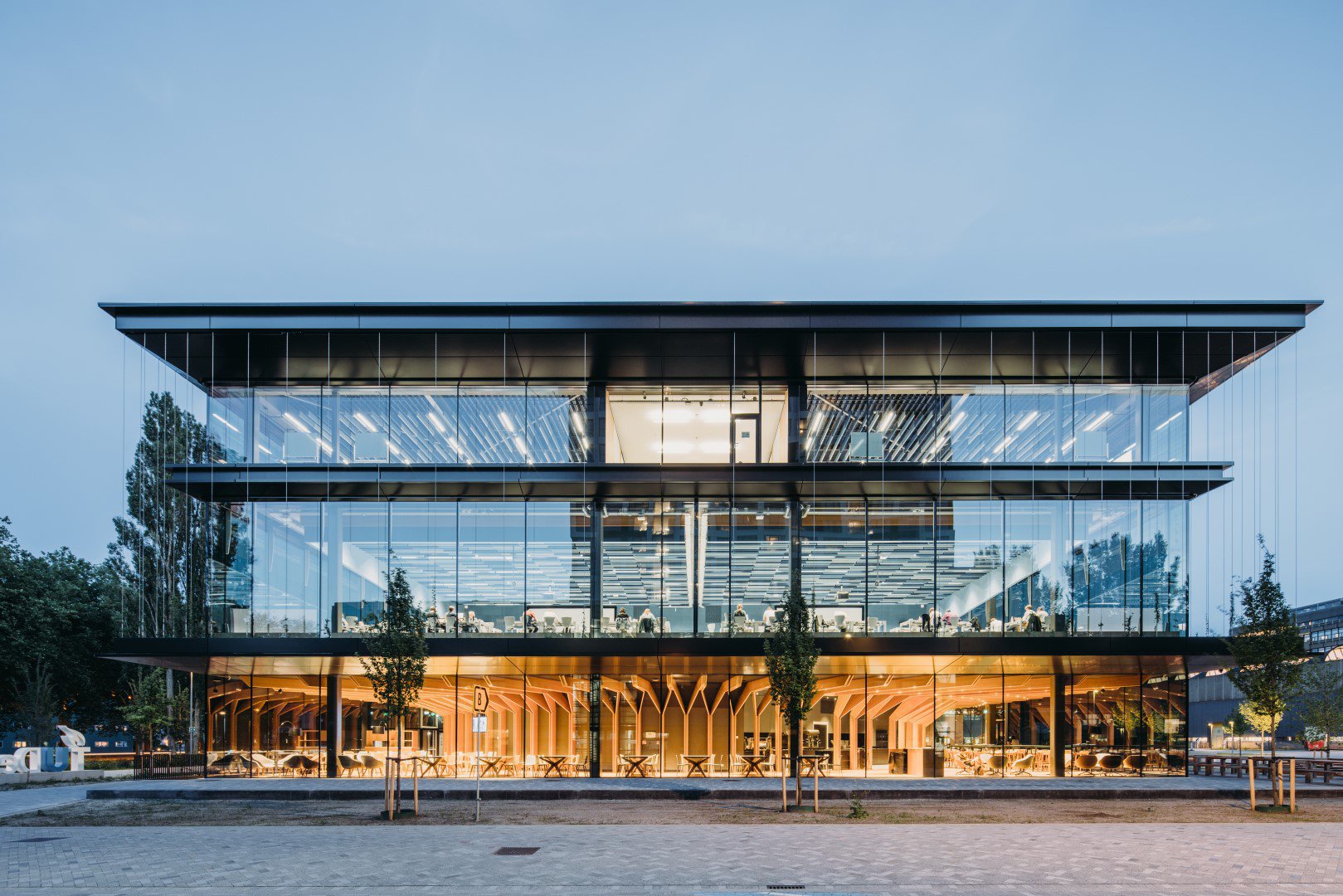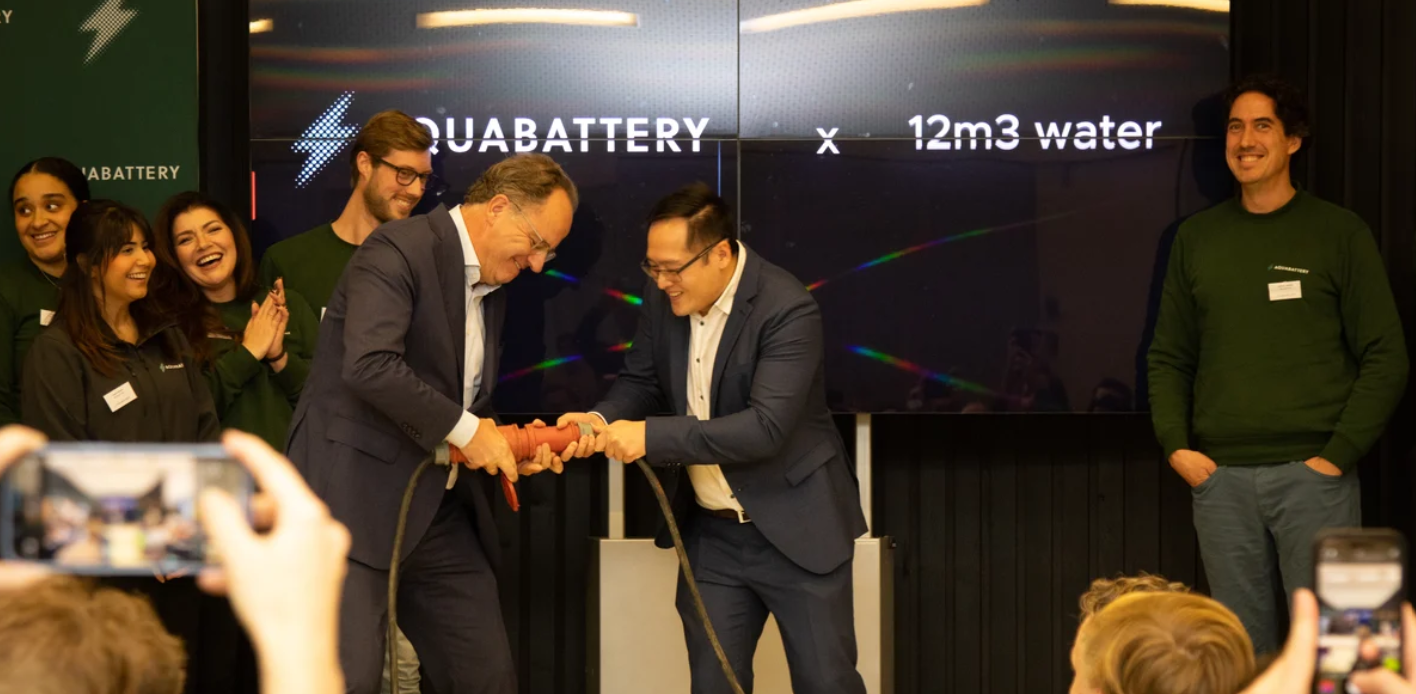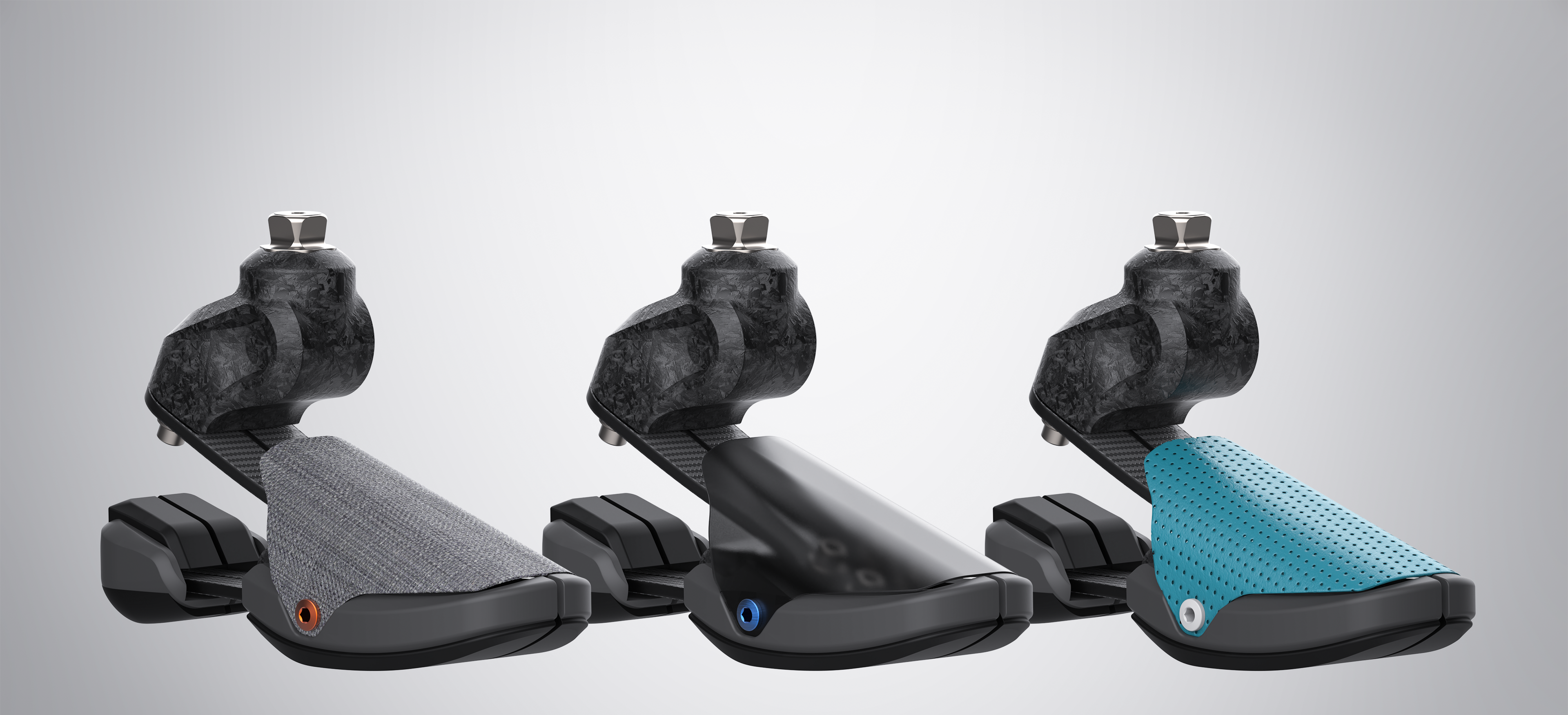A stretch of bicycle lane that monitors both the amount of traffic and the speed of its users has been installed at TU Delft campus. Underground sensors, supplied by PlasticRoad, augment the above-ground network of sensors already available at TU Delft Campus. The combination of innovative sensors and unique measurements makes this the most intelligent bicycle lane of the Netherlands. The project yields crucial insights into road user behaviour, which will be used to provide smarter and more efficient access to the cities of the future.
Various sensors within and below the pavement monitor road usage and its effects. The information gathered includes the local temperature and the amount of precipitation. The underground sensors augment the sophisticated above-ground monitoring system, consisting of 3D cameras, Wi-Fi, radar, Bluetooth and mmWave. The combination of sensors provides unique insights for the ongoing Smart Urban Mobility research, led by professor Serge Hoogendoorn. The aim of this research is to develop sustainable, efficient, and innovative mobility solutions, allowing the cities of the future to remain accessible and habitable. Moreover, the project is an important test case for the sensors themselves, allowing their further development.
The intelligent bicycle lane, stretching 25 meters, consists of sustainable and circularly developed elements made of recycled household plastic waste. The integrated hollow space serves as a temporary reservoir for rainfall, ideal for making cities more climate proof. Eric Kievit, director of PlasticRoad: ‘Roads that understand their usage – the kind of traffic and rainfall they accommodate, and that can communicate with other platforms such as traffic lights, public lighting, dynamic wayfinding, maintenance planning and sewage systems – are the future. Thanks to this unique collaboration, we will come ever closer to a world in which layout design of cities is both smart and efficient, with sustainable traffic management. As PlasticRoad, we are proud to significantly contribute to this unique project.’
Outdoor Mobility Digital Twin
All data generated by the sensors, and other data sources, is made accessible through the so-called Outdoor Mobility Digital Twin – a 3D digital copy of the TU Delft Campus. The system allows the real-time tracking of public transport on the TU Delft Campus. On a per-minute basis, it will map the number of cars, bicycles, and pedestrians as well as their speed and the direction in which they travel. Supported by Artificial Intelligence, both short-term projections and long-term forecasts of on-campus transport flows are made available. Insight into all displacements on TU Delft Campus, a small city in its own right, are highly relevant when it comes to the design of sustainable mobility solutions and the accessibility of the cities of the future.
Joining forces
The project comprises two Field Labs – real life testing sites at TU Delft Campus where companies, government agencies, and researchers collaborate to accelerate breakthrough innovations. Field Labs Delft on Internet of Things (Do IoT) and Mobility Innovation Centre Delft (MICD) join forces, building on collaborative research performed over the past two years.
Sascha Hoogendoorn-Lanser, project initiator and director of the MICD, is enthusiastic about the intelligent bicycle lane: ‘Many researchers and companies have shown interest in participating in the project; it shows that our innovative approach towards data acquisition is of great relevance to both companies and research groups of various disciplines. The TU Delft Campus is an ideal real-life testing site for analysing human behaviour and evaluating innovations in real-time. All of this while safeguarding the privacy of campus visitors: within our systems, displacements are only shown as anonymous dots.’
Lenneke de Voogd-Claessen, programme manager of Do IoT: ‘How does the quality of the various sensors compare, how good is their connectivity and which sensors are most suitable for certain situations? Thanks to our broad collaboration, including start-ups, companies, Field Labs, and researchers, our project will yield insights that allow us to accelerate breakthrough innovations in smart mobility.’
Various research groups of two TU Delft faculties collaborate as well: four groups of the faculty of Civil Engineering and Geosciences (CEG) and one from the Faculty of Electrical Engineering, Mathematics & Computer Science (EEMCS). TU Delft Campus as a real-life open-air laboratory allows them to gather unique data – on, for example, transport and planning, how the weather affects human behaviour, and road wear.
The project is co-financed by the Rotterdam-The Hague Metropolitan Area. In January, the intelligent bicycle lane will be officially opened by Jan-Dirk Jansen, dean of CET, and Bas Vollebregt, alderman of economics of Delft municipality. Preliminary results of the first two months will be shared at this occasion.
Photography: Rick Wink Photography

